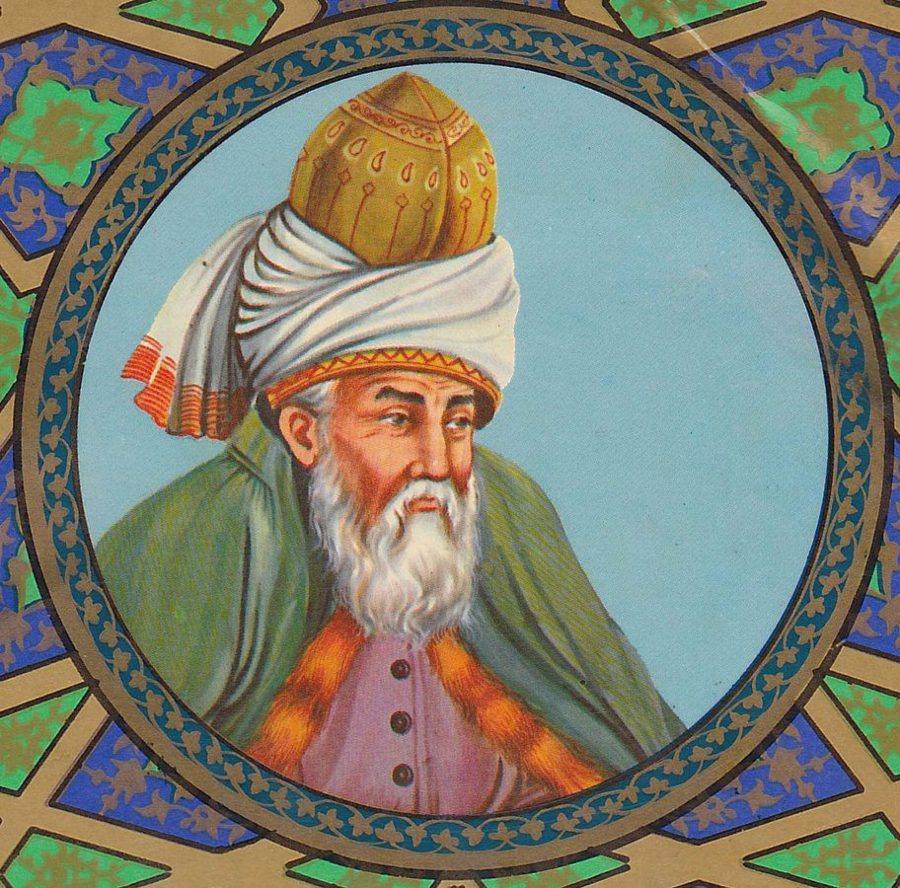Rumi’s Philosophy of Love: Beyond the Quotes (2026 Guide)
Table of Contents
Why are we still reading a Turkish mystic from the 13th century in 2026? In a world defined by dopamine loops, phantom vibrations, and the relentless demand to be “on,” the silence Rumi demands isn’t a luxury anymoreit is a survival mechanism.
Jalāl al Dīn Muḥammad Rūmī wasn’t born writing verses about wine and lovers. He was a tenured professor of his time, a rigid academic who had to lose everything he thought he knew to find something real. This isn’t a dry history lesson. This is a blueprint on how to shatter your own ego to find the truth buried underneath.
In this piece, we strip away the “Live, Laugh, Love” veneer to look at the radical philosophy of the Mevlevi order.
From Scholar to Mystic: The Resume Gap
We often picture Rumi as a gentle hippie meditating in a rose garden. The reality was far more abrasive. Born in present day Afghanistan, his family fled the terrifying Mongol invasions to settle in Konya, in the heart of Anatolia. Rumi was an orthodox theologian, a “Man of the Book.” He was the Establishment.
While his contemporary Yunus Emre was wandering the countryside distilling complex theology into folk poetry, Rumi was preaching from a high pulpit. He was a pillar of societysecure, respected, and arguably, asleep. Then he met Shams.
The Spark That Burned the House Down: Shams Tabrizi
In 1244, the unthinkable happened. Rumi crossed paths with Shams Tabrizi, a wandering dervish in ragged clothes. Shams wasn’t a teacher in the academic sense; he was a spiritual arsonist.
The legend goes that Shams took Rumi’s precious, handwritten manuscripts and threw them into a well (or a fountain), asking: “What is worth more to you: The ink in these books or the fire in your chest?”
That moment dismantled Rumi’s conventional life. He neglected his tenure, his reputation, and his social standing to seek divine truth in the presence of this wild stranger. It wasn’t a gentle evolution; it was a hostile takeover of the soul. When Shams later disappeared (likely murdered by Rumi’s jealous inner circle), Rumi didn’t just grieve. He channeled that catastrophic loss into poetry and began to turngiving birth to the practice of the Whirling Dervishes.
Understanding the Work: A Navigation System for the Soul
Rumi’s body of work is massive. Don’t let the volume scare you off. Here is the curator’s guide on how to read him without getting lost:
- The Masnavi (The Persian Quran): This is the magnum opus. Six volumes of teaching stories. You don’t read this from page one to the end. It’s structured like a complex woven rugpatterns within patterns. If you are facing a crisis, open the Masnavi; it often acts as a mirror.
- Divan e Shams e Tabrizi: This is the explosion. Over 40,000 verses written in a state of spiritual intoxication. It is pure rhythm and raw emotion.
- Fihi Ma Fihi (It Is What It Is): His table talks. Here, the poetry drops away, and we see Rumi the teachergrounded, direct, and practical.
The Philosophy: Why “Love” is a Mistranslation
When we say “love” in English, we think of romance, dates, and compatibility. Rumi spoke of Ishq—a consuming, divine fire that burns the “I” until only the “We” (unity with the Divine) remains.
- The Death of the Ego: For Rumi, your ego is the static interfering with the signal. His famous “whirling” isn’t a dance; it’s a physical method of spinning the ego out of the center.
- Radical Tolerance: “Come, come, whoever you are.” This wasn’t just a nice sentiment; it was revolutionary defiance. In a 13th century world torn apart by the Crusades and Mongol armies, Rumi preached a unity that transcended religious dogma.
Rumi in 2026: Kitsch vs. Wisdom
Today, Rumi has been commodified. You find his truncated quotes on coffee mugs and motivational posters. There is a real danger of “Disney fying” his deep, often painful wisdom. But even in this diluted form, he strikes a nerve.
Pro Tip: If you visit Turkey, skip the tourist traps. Don’t just rely on your skills in Turkish market negotiation to buy a plastic dervish figurine. Go to Konya. Witness a real Sema ceremony. You want to feel the vibration, not just buy the aesthetic.
Street Smarts: Applying Rumi to Modern Stress
You don’t need to become a Sufi to use this toolkit. Here are three practical applications of his philosophy for the modern grind:
- Embrace the Friction: Rumi said, “The wound is the place where the light enters you.” Stop numbing your pain with distractions. Treat your crises like a day at a Turkish Hammam—the scrubbing is abrasive and uncomfortable, but it’s the only way to truly clear the pores of the soul.
- Be a Host to Your Anxiety: In his poem “The Guest House,” he advises us to welcome every emotionanger, grief, joyas an unexpected visitor. Don’t barricade the door. Invite them in for tea, listen to what they have to say, and then let them leave.
- Don’t Seek Water, Be Thirsty: We spend our lives hunting for external solutions (the better job, the better partner). Rumi teaches that the seeking itself is the destination. The thirst is the guide.
The Bottom Line
Rumi invites us to demolish the walls of our own mental prisons. His message is perhaps the most potent antidote we have for the isolation of the digital age. He reminds us of a fundamental truth: You are not a drop in the ocean. You are the entire ocean in a drop.








